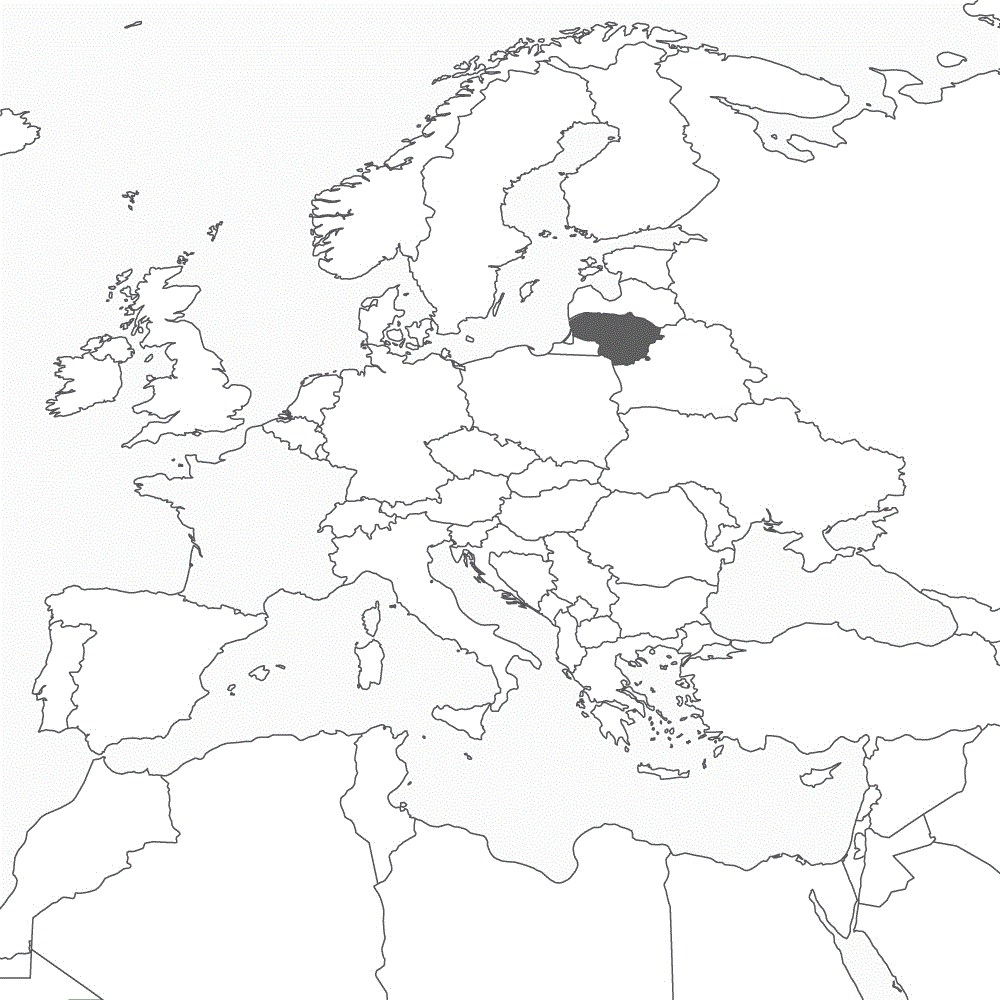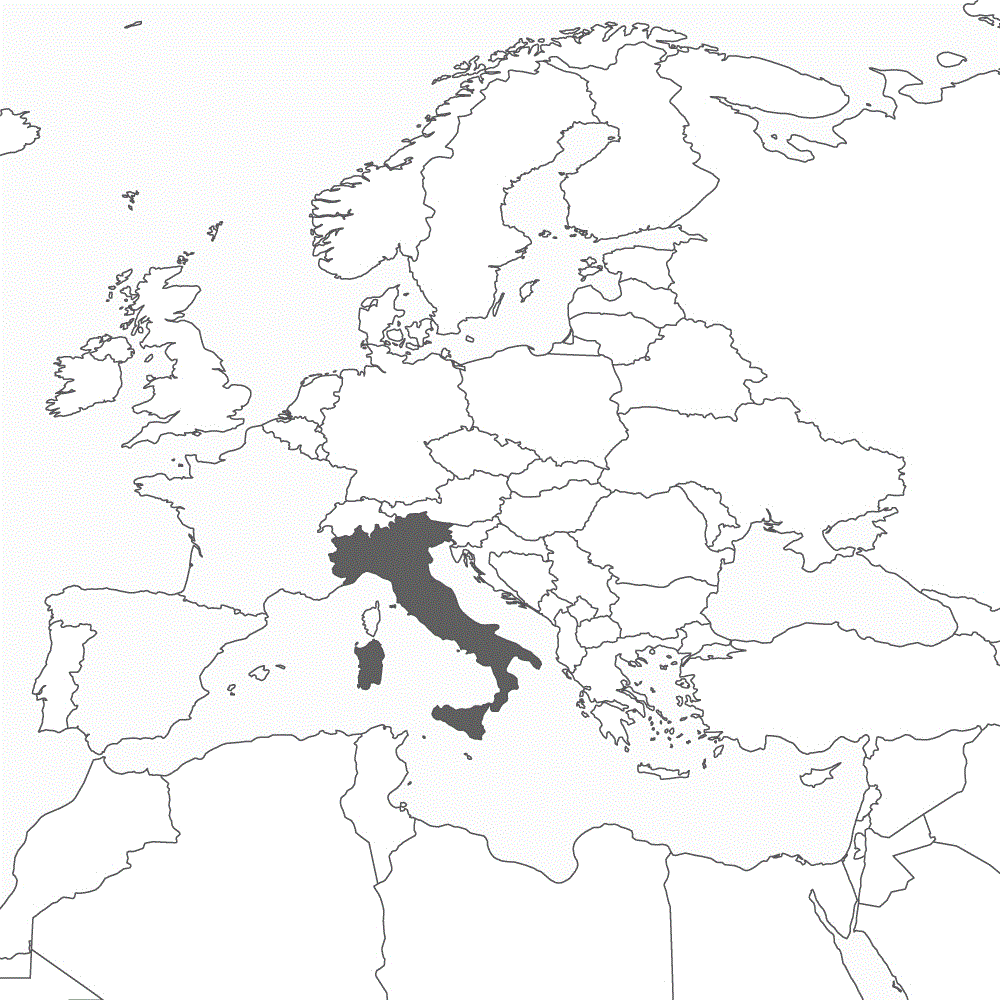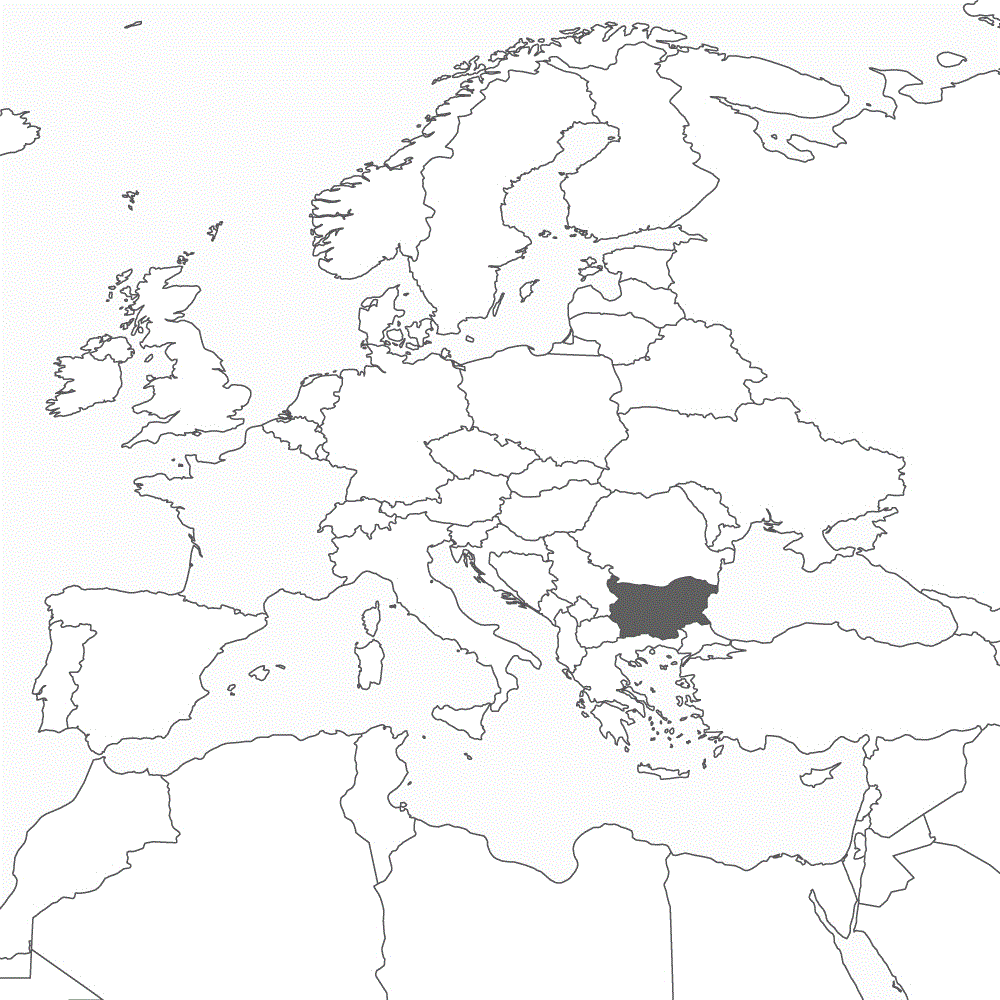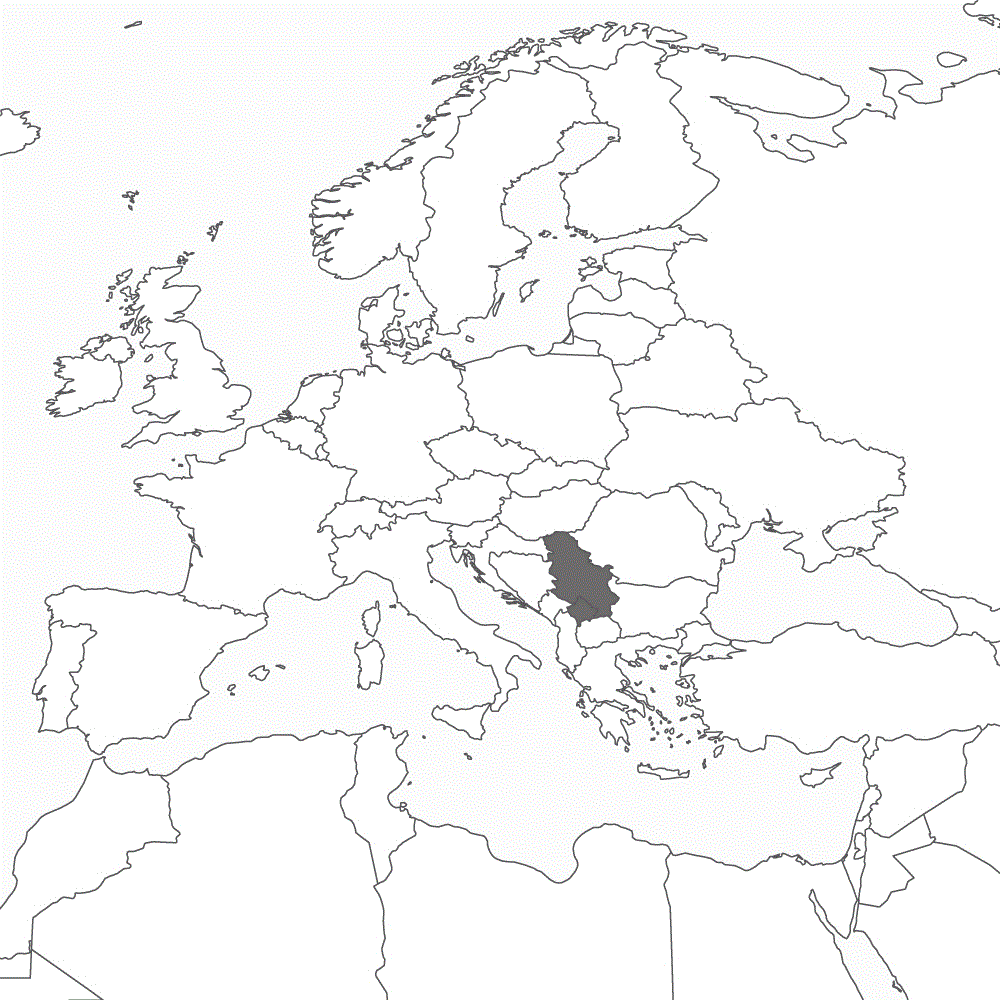At the Center of the Risk of Escalation
At its summit, NATO positions itself against Russia. Lithuania, the Bundeswehr’s priority partner nation, is geostrategically exposed and faces a particular risk of escalation.
BRUSSELS/VILNIUS/BERLIN (Own report) – NATO declares Russia to be “the most significant and direct threat” and orients its new force model on ramping up military forces at its eastern flank, according to the new Strategic Concept and force model adopted by the heads of states and governments of the western military pact at yesterday’s summit in Madrid. In addition, the number of high readiness forces will be increased from 40,000 to well over 300,000. The individual armed forces will also be assigned to fixed areas of operations in the event of war. According to the current state of discussion, the Bundeswehr would be primarily responsible for Lithuania. That country is geostrategically exposed, because its southern region lies between Belarus and the Russian exclave Kaliningrad. Moreover, its government is extremely provocative, as its behavior in conflicts with China and Russia demonstrates. This increases risks of escalation – not least of all for the Bundeswehr. Read more
“Welcome to Guantanamo!”
Amnesty International decries mistreatment of refugees in Lithuania and racist discrimination of non-white versus Ukrainian refugees; speaks of “torture.”
VILNIUS/WARSAW/BRUSSELS (Own report) – Lithuanian border officials and camp guards regularly mistreat non-white refugees and violate international law with their procedures. This is documented in a report published today by Amnesty International. According to this report, refugees were pushed into a river of chest high water as they were illegally forced back toward Belarus at the Lithuanian border. Others were maltreated with sticks and tasers. According to Amnesty, living conditions in Lithuania’s detention centers “amount to torture.” The organization particularly decries the discrimination of non-white versus Ukrainian refugees, who are welcomed with open arms. Non-white refugees, however, are additionally exposed to blatant racism at the borders and in the detention camps. Amnesty had already described similar conditions in Poland back in April. According to Amnesty, the EU and particularly the EU Commission under the leadership of its German President Ursula von der Leyen, are co-responsible: Brussels supports the border closures, while de facto tolerating mishandling and violations of international law at its borders. Read more
The West Against the Rest
Chaired by Germany, G7-summit is to prepare new measures in the economic war against Russia. Expanding BRICS alliance is forming counterweight.
ELMAU/BEIJING (Own report) – Chaired by Germany, the G7-summit, which will begin on Sunday in Elmau (Germany) plans to prepare new measures in the West’s economic war against Russia. According to these plans, Washington is seeking to reach an agreement on projects, which would facilitate lowering the price of oil, at Russia’s expense. The high price of gasoline can impact the chances of the party of the US president in the midterm elections in November. In addition, the G7 is seeking to woo five states, invited as guests to Elmau, into joining the anti-Russia sanctions, which are still supported by only a quarter of all countries worldwide. The invited guests include Senegal and Indonesia, which are publicly calling for lifting the sanctions. India and South Africa, both members of the BRICS alliance, will also be present, as well as Argentina which is planning to join that alliance. BRICS, of which Russia is a member, criticized the sanctions policy and positioned itself as a counterweight to the West at its summit yesterday. Read more
War Divides
Foreign policy think tank expects dissipating support for Ukraine war and warns of polarization in the EU. Those favoring rapid peace already the majority.
BERLIN/ROME (Own report) – A Europe-wide think tank, headquartered in Berlin, warns of a long-lasting polarization in the EU caused by the Ukraine war. As the European Council on Foreign Relations (ECFR) acknowledged in its evaluation of the results of its survey, conducted in ten European countries, it is possible to identify already today, two clearly distinct opinion spectrums within the population. Whereas one of these insists, Russia must be defeated at all costs, the other urges a rapid peace settlement, even if this means Ukraine must make concessions. This is due to fears that the war will have negative consequences on the living standards throughout Europe and even threatens to escalate into a nuclear conflict. The ECFR considers that if the Ukraine war continues, the pendulum could swing in favor of those favoring peace, possibly endangering the cohesiveness of the EU. Declining support for arms deliveries to Ukraine had already been registered in Germany in May. In Italy, public protests opposing them are even spreading. Read more
Combat Brigades instead of Battlegroups
NATO defense ministers decide to deploy combat brigades on the alliance’s eastern flank and to transition Ukraine’s armed forces to NATO-standards.
BRUSSELS/KIEV (Own report) – NATO countries will transition Ukrainian armed forces to NATO-standard and enable them, in the long run, to improve their interoperability with NATO. This was confirmed by NATO Secretary General, Jens Stoltenberg, following NATO’s defense ministers meeting, yesterday. In addition, the ministers have agreed on a model for an arms buildup on the alliance’s eastern flank. This foresees the deployment of combat brigades, of course, with only half of the soldiers being permanently stationed there, while the others will remain on increased readiness at their home bases. To enable deployment at the front, as quickly as possible, large quantities of heavy weapons will be already stockpiled in eastern and southeastern Europe. New measures were decided for Ukraine’s immediate arms buildup, which already has been provided enough military hardware to equip twelve artillery battalions. The arms deliveries will be practically coordinated from a cell located at the Patch Barracks in Stuttgart-Vaihingen. Read more
The EU’s Credibility
Scholz’ visit to Southeast Europe: 19 years after EU accession promises for the region, still no tangible progress. Bulgaria names “cultural center” after Nazi collaborator.
SOFIA/SKOPJE/BERLIN (Own report) – Prior to the EU Commission’s decision whether to grant Ukraine the EU candidate status, the accession process in Southeast Europe remains bogged down. Over the weekend, Chancellor Olaf Scholz’ attempt, to persuade Bulgaria to lift its veto on the planned accession negotiation of North Macedonia, proved a failure. The Bulgarian government justifies its veto with ethnic claims, according to which, the population of North Macedonia belongs to the “Bulgarian peoples” without viable autonomy. Skopje must thus confess its “Bulgarianism.” Sofia has named a “Bulgarian Cultural Center” in the North Macedonian city of Bitola after a Nazi collaborator, who had led the fight for the Greater Bulgaria cause in collaboration with Nazi Germany. The fact that, 19 years after the EU’s formal promises of accession, not even the necessary negotiations have been initiated, has provoked great resentment in North Macedonia. Skopje says that the EU must realize, that not promises, but actions are what count. Read more
“This is Our Back Yard!” (III)
In the runup to Chancellor Scholz’ visit to Belgrade, tomorrow, Berlin increases pressure on Serbia to join EU sanctions against Russia.
BERLIN/BELGRADE (Own report) – The German government is intensifying pressure on Serbia to join the EU’s policy of sanctions against Russia. In the runup to German Chancellor Olaf Scholz’ visit to Belgrade tomorrow, it has been reported that the Serbian government is faced with the choice of either joining the sanctions or endangering its candidacy for EU membership. For many years, Serbia has been pursuing a foreign policy oriented, on the one hand, on obtaining EU membership, while maintaining good relations with Russia and China, on the other. Its ties to Moscow, in particular, have a long tradition. Even though Belgrade had condemned Russia’s intervention in Ukraine in the UN General Assembly, it refuses to impose sanctions on Russia. Most recently, Moscow and Belgrade decided, instead, to expand their economic relations; Serbia especially wants to buy Russian gas at a reasonable price. At the beginning of the week, several NATO countries sabotaged Russian Foreign Minister Lavrov’s visit to Belgrade, by closing their airspace to his aircraft. Read more
The Hunger Crisis (III)
EU obstructs UN efforts to deliver Ukrainian grain via Belarus to world markets. Russia and Turkey clear the way for Ukrainian grain exports.
BERLIN/KIEV/MINSK (Own report) – The EU is obstructing UN efforts to avert global hunger being caused by war and sanctions. The plan provides for the transit of Ukraine’s huge grain reserves over Belarus for shipping via ports at the Baltic Sea. The plan endorsed by UN Secretary General António Guterres is considered to be the only viable alternative to the recently blocked grain-transport via the Black Sea. Of course, the EU is not ready to allow the prerequisites for the plan’s successful implementation and to lift its sanctions against Belarusian fertilizer exports. UN Secretary General António Guterres is in favor of lifting these sanctions to secure the global supply of fertilizers. In a highly symbolic step, Brussels toughened its sanctions against Belarusian fertilizer producers last Friday. On the other hand, UN efforts to jump-start the export of Ukrainian grain via the Black Sea are gaining momentum. Russia and Turkey are paving the way for initial shipments from Odessa. Read more
GERMAN-FOREIGN-POLICY.com
Information on German Foreign Policy: News + Interviews + Analyses + Background





